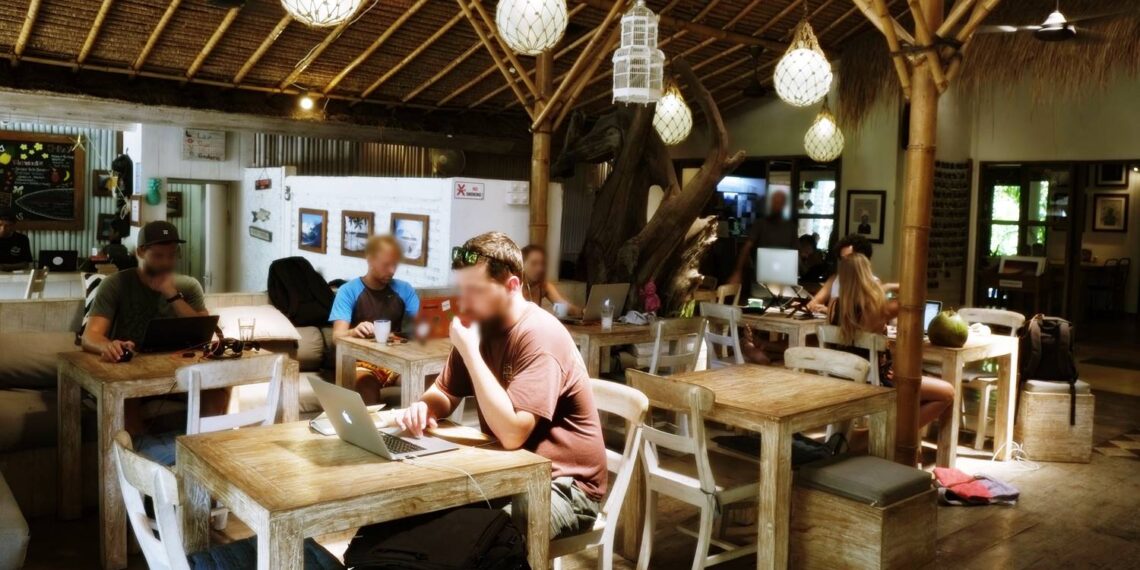No products in the basket.
Over the last few years, Indonesia has positioned itself as one of the main players within the startup ecosystem in the SEA region.The island boasts a vibrant scene of sustainability startups addressing issues such as waste, water, and mobility, but access to capital remains a concern.
– 🏝️ Bali’s Transformation: From Tourist Haven to Tech Hub Bali has transitioned from a tourism-reliant island to a burgeoning tech hub in Southeast Asia. This shift was spurred by the COVID-19 pandemic, which severely impacted tourism.
– 🚀 Silicon Bali: A Hub for Sustainability Startups Bali’s tech scene is characterized by a focus on sustainability. Startups in this area are tackling issues like waste management and renewable energy.
– 🏛️ Government Support for Digital Transformation The Indonesian government has played a key role in supporting Bali’s digital transformation. Initiatives include renaming the Ministry of Tourism to the Ministry of Tourism and Creative Economy and establishing a digital nomad visa.
Indonesia has eight unicorns and two decacorns: GoTo Group and J&T Express according to Statista . GoTo Group launched its initial public offering (IPO) in 2022. The first five Indonesian e-commerce platforms to attain unicorn status, Gojek, Tokopedia, Traveloka, Bukalapak, and OVO, did so before the pandemic hit the country. In 2021, Gojek and Tokopedia merged to create GoTo Group. Shortly after the merger, GoTo announced the sale of 75 percent of Tokopedia’s shares to TikTok in December 2023.
Here are some examples of successful tech startups based in Bali and the sectors they are focused on:
- Travelio – A vacation rental platform that connects travelers with local accommodation options in Bali and other Indonesian destinations. They focus on the tourism and hospitality sector.
- Brick – A fintech startup providing digital banking and payment solutions, with a focus on serving the unbanked and underbanked populations in Indonesia.
- Evoware – A sustainable packaging startup that develops biodegradable and edible packaging made from seaweed, catering to the growing demand for eco-friendly alternatives.
- Graphene – A renewable energy company that develops solar-powered solutions and smart home technology, leveraging Bali’s abundant sunshine.
- Aruna – A seafood e-commerce platform that connects small-scale fishermen in Indonesia with buyers, promoting sustainable fishing practices.
- Kata.ai – An artificial intelligence and natural language processing startup that provides conversational AI solutions for businesses.
- Beehive – A proptech (property technology) startup digitizing real estate processes and transactions in Indonesia.
These startups showcase Bali’s diverse tech ecosystem, with a focus on sectors like tourism, fintech, sustainability, renewable energy, and smart technology. The island’s unique cultural and environmental context is driving innovation in these areas.
Bali is emerging as a tech hub in the Southeast Asia region
During the last few years, Bali has been undergoing a transformative shift towards becoming a technology hub in Southeast Asia (SEA). This transition is rooted in the island’s response to the economic impact of the global pandemic, which exposed the vulnerabilities of an over-reliance on tourism.
With international borders closed Bali experienced a significant economic contraction, prompting a strategic pivot towards diversifying its economic pillars.
The local government has recognized the need for economic resilience, and has been proactive in nurturing the tech sector for post-pandemic recovery. Initiatives such as the Bali Digital Festival have brought together startups, tech firms, and key players in the digital industry.
The shift towards technology and innovation was a strategic move by the local government and entrepreneurs to diversify Bali’s economic pillars. The island’s tech ecosystem, although smaller than Jakarta’s, has seen a remarkable increase in activity with the establishment of incubators, accelerators, and co-working spaces.
The island’s strategic location in SEA has made it an attractive locale for both local and foreign tech talent. This influx of expertise is further bolstering Bali’s position as a tech hub.
The establishment of the Tsinghua Southeast Asia Center Campus in Bali further solidifies the island’s position as a learning and innovation hub. This initiative provides a wealth of content and a strong complement to university studies, catering to individuals from various walks of life.
What are the main factors behind Bali’s growth as a tech hub?
Bali’s ascension as a technology hub in Southeast Asia (SEA) is a multifaceted phenomenon, driven by a confluence of factors that have collectively fostered an environment ripe for technological innovation and entrepreneurship, some of the main factors behind Bali’s growth as a tech hub are:
Strategic Government Initiatives
The Balinese government has played a pivotal role in catalyzing the tech movement by launching strategic initiatives aimed at fostering innovation. These include tax incentives for tech startups, streamlined business registration processes, and investment in high-speed internet infrastructure. Such measures have made Bali an attractive destination for tech entrepreneurs.
Here are some of the key government initiatives supporting Bali’s development as a tech hub:
- Digital Nomad Visa: The Indonesian government introduced a new “digital nomad” visa in 2022, which allows remote workers and digital nomads to live and work in Bali for up to 5 years. This is aimed at attracting tech professionals and entrepreneurs to the island.
- Bali Tech Park: The government is developing a dedicated technology park in Bali, with plans to provide modern infrastructure, co-working spaces, and incentives to attract tech companies to set up operations.
- Tax Incentives: The government offers tax incentives and holidays for tech companies establishing themselves in Bali, including corporate tax reductions and import duty exemptions on technology equipment.
- Startup Incubation Programs: The government, in partnership with the private sector, has launched startup incubation and acceleration programs in Bali, providing funding, mentorship, and networking opportunities for local tech entrepreneurs.
- Investment Promotion: Bali’s investment promotion agency actively markets the island as a prime destination for tech companies and startups, highlighting the available talent, lifestyle benefits, and government support.
- Skill Development Initiatives: The government is investing in upskilling programs and collaborating with universities to develop a strong pipeline of tech talent in Bali.
Collaborative Ecosystem
The establishment of numerous co-working spaces, tech incubators, and accelerators has facilitated a collaborative ecosystem. These hubs serve as melting pots for ideas, allowing local and international tech professionals to network, share knowledge, and collaborate on projects.
These initiatives, combined with Bali’s natural beauty and vibrant cultural scene, are helping to position the island as an attractive option for tech companies and digital nomads looking to establish a presence in Southeast Asia.
Educational Investments
Recognizing the importance of a skilled workforce, there has been significant investment in education and training programs focused on technology and entrepreneurship. Universities and vocational schools in Bali have updated their curricula to include cutting-edge tech courses, producing graduates who are well-equipped to join or start innovative tech ventures.
International Conferences and Events
Bali has become a prime location for international tech conferences, workshops, and seminars. These events have not only put Bali on the global tech map but have also facilitated knowledge exchange and attracted further investment into the region’s tech sector.
Supportive Local Community
The local community in Bali has shown tremendous support for the tech industry. From local businesses integrating e-commerce solutions to the public sector adopting digital services, there’s a widespread recognition of the benefits that technology can bring to everyday life.
Bali has emerged as a tech hub in the Southeast Asia region due to intentional policy decisions, cultural dynamics, educational progress, and a supportive ecosystem. These elements have shifted Bali from a tourism-focused economy to a thriving center of technological innovation.
Discover more from Thailand Business News
Subscribe to get the latest posts sent to your email.













